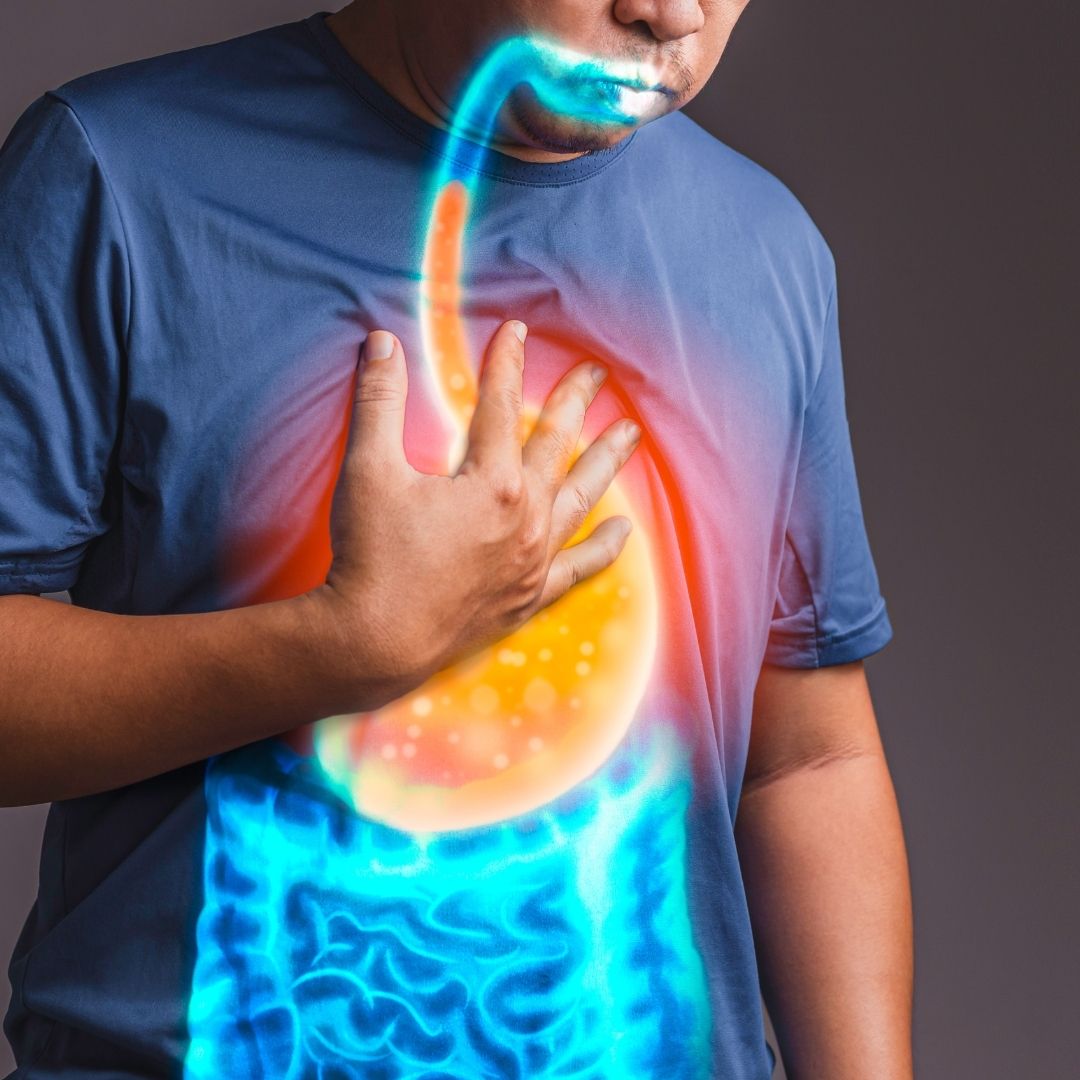Feel the Burn No More
Without fail, every time you overdo it at dinner, you get that telltale burn in your chest. This unpleasant sensation is called heartburn, and if it happens more than twice a week, it may be gastroesophageal reflux disease (GERD).
Here’s what’s happening: Acid from foods rises up from your stomach into your esophagus (the tube that connects your stomach to your throat), causing the burn. You may even taste stomach acid in the back of your mouth (yuck!). With GERD, the muscle at the end of your esophagus (lower esophageal sphincter) doesn’t close properly, so acid flows up instead of down. Over time, GERD can irritate the lining of your esophagus, leading to precancerous changes.
Some people have GERD without heartburn. Other symptoms of GERD include:
Dry cough
Asthma symptoms
Trouble swallowing
You don’t have to live like this any longer. Stopping the burn starts with:
Losing weight (if you need to)
Add GERD to the list of diseases and conditions associated with being overweight or obese. Losing just 10 to 15 pounds can make a big difference in your heartburn symptoms.
Not eating right before bed
If you have GERD symptoms at night or when you’re lying down, try to eat any meals at least three hours before you lie down. What’s more, elevating your head with a few pillows at night can help keep acid down.
Kicking the smoking habit
If you smoke, easing heartburn is yet another great reason to quit. Smoking can increase the amount of acid in your esophagus.
Chilling out
Stress makes everything worse – including your GERD symptoms. Find something that helps take the edge off – whether meditation, exercise, yoga or even taking a series of deep healing breaths – and do it every single day.
Avoiding GERD triggers
Keep a journal of your GERD triggers and take steps to avoid them when and where possible. Some common GERD triggers may include:
Tomatoes
Alcohol
Chocolate
Coffee and other sources of caffeine
High-fat foods
Mints
Spicy foods
Considering medication
Over-the-counter heartburn drugs, such as Nexium, Prilosec or Prevacid, are known as proton pump inhibitors. These drugs keep the stomach from producing too much acid. Taking them for too long may increase risk for side effects, including infections and bone fractures.
Antacids, also available over the counter, work quickly to neutralize acid in the stomach. They contain aluminum, calcium, magnesium, or sodium bicarbonate which counteract stomach acid. They are not risk free. Antacids with magnesium may cause diarrhea, while those with calcium or aluminum may cause constipation. Taking large amounts of antacids that contain aluminum can leach calcium from bones, increasing risk for the brittle bone disease osteoporosis. Another class of heartburn medication, H2 blockers, also dial down the amount of acid your stomach makes. H2 blockers usually start to work within an hour. Side effects are rare with this class of drugs, but they may interfere with other medications you are taking.
Surgery that strengthens the opening between the stomach and esophagus may be an option if GERD is caused by a physical problem, like a hernia.
Going natural
Given the list of potential side effects with OTC and prescription GERD remedies, many people seek natural remedies for heartburn or GERD such as Forces of Nature Heartburn Relief. Placing 6 to 9 drops under your tongue at first symptom can help ease heartburn, acid indigestion, and GERD. Repeat dose every 15 minutes until symptoms improve. Key ingredients work together: Berberis Vulgaris and Iris versicolor ease acid buildup as Valeriana Officinalis reduces spasms and bloating in the gut, and Calendula neutralizes acid indigestion.
Sources:
U.S. National Library of Medicine.” Taking antacids.” https://medlineplus.gov/ency/patientinstructions/000198.htm
National Institutes of Health. “Feeling the Burn? Options for Acid Reflux.” https://newsinhealth.nih.gov/2018/11/feeling-burn
U.S. National Library of Medicine.” Proton pump inhibitors” https://medlineplus.gov/ency/patientinstructions/000381.htm
U.S. National Library of Medicine. H2 blockers. https://medlineplus.gov/ency/patientinstructions/000382.htm


